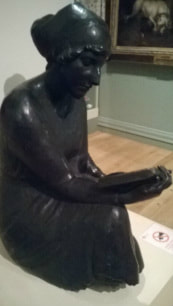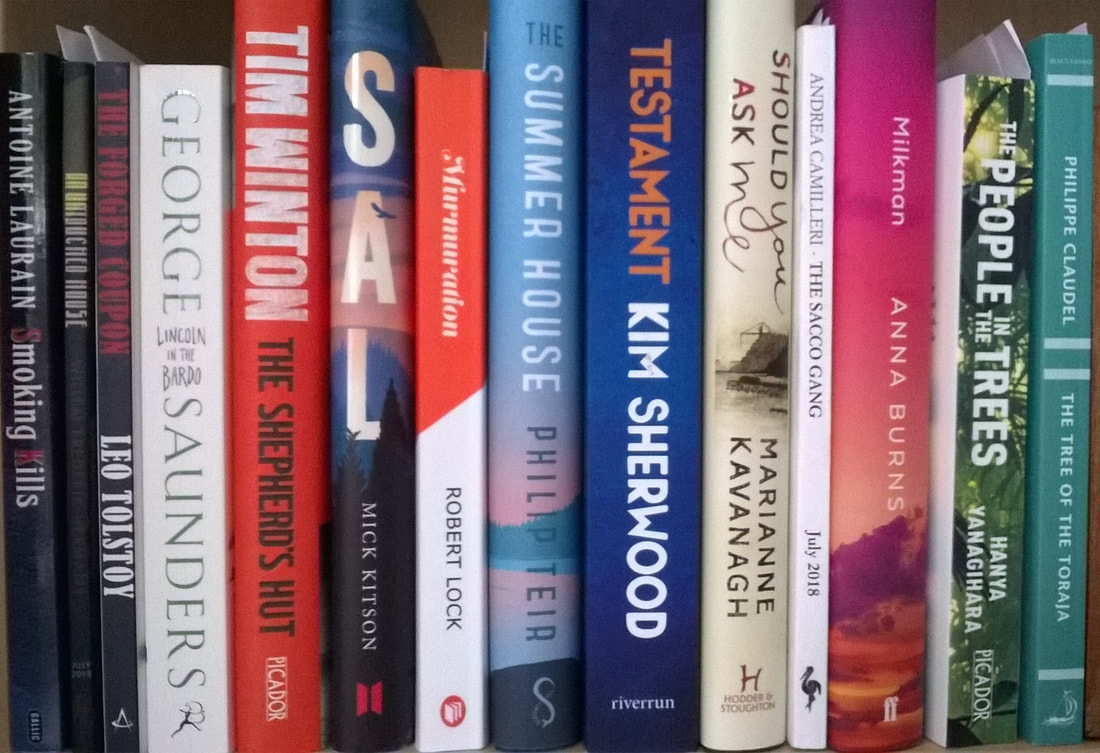| I’m a woman. I enjoy novels written by women. Indeed, some of my favourite authors are women, such as Margaret Atwood, Carol Shields, Ann Patchett, Alison Moore. Six of my favourite reads from last year were written by women. So I don’t need to check whether female authors are fairly represented in my reading and reviewing, do I? It’ll just happen, in the natural way of things. |
Well, not if misogyny is the natural way of things, such that we need #metoo conversations to support each other to redress the balance. Still, that shouldn’t affect me in the privacy of my reading chair, should it?
I felt slightly embarrassed to set myself a target earlier this year that at least 50% of the books I read would be by women. Only half? I’m all for achievable goals, but that should be a doddle. Yet I failed in the first month.
I’ve made up for it since, with 62% of my reading over the first six months of 2018 being by women. Better than half, but with no wiggle room for complacency.
Less than a week into July, I’d posted five reviews (six if you count 2017 Man Booker Prize winner Lincoln in the Bardo which I read for my book group); hurrah for me, except that every one was of a book written by a man. With five more male-authored books on my TBR shelf with publication dates this month, it didn’t look as if the balance would get any better.
So why should that be, and does it matter? Is it, you may well ask, simply fodder for my attempts to end each month with a post on reading?
One possible reason relates to another of my aims – which, incidentally, I was failing at more dismally until this month – to read at least 20% translations (I’ve managed 15% over the first six months of the year). I haven’t monitored this in detail – I’m obsessional, but not that obsessional – but, a glance at my translation shelf suggests that less than a quarter of such books coming my way are by women. This month I have reviewed an impressive six translations, but each has a male author and only two a female translator.
But it’s not only me. Works by women are underrepresented in translations, but the people behind the accounts on Twitter and Instagram are active in helping you find them. And with August designated women in translation month, expect more in the coming weeks!
It can be time-consuming flagging these worthwhile causes, however. Unfortunately, the read women Twitter account established by Joanna Walsh met its demise last month after four years of dedicated tweeting. Although I was disappointed to see it go, I must confess to having been fickle and/or negligent in my use of the hashtag.
Could it be that I don’t enjoy books by women as much as I thought I did? Or is it that my preferences have changed over time? When I posted on that topic last month one person (female) commented that she’d come to prefer fiction with a male narrator (although that doesn’t necessarily mean a male author). But I don’t think it’s that way for me.
If I believe in equality and I enjoy books by women, it has to matter if I fail to read enough. It matters for the authors who might not get their fair share of blogger support (although I don’t delude myself my support counts for much) and it matters for me personally if I’m missing out on the reading experiences I genuinely want.
I’m not sure what action to take, if any, but I can’t blame the publishers. Even if male writers dominate the book world, there are still more decent novels by women than I can possibly read. So I might need to try a bit harder to get my hands on them.
For now, I’ll wait to see whether being more aware of this will give me a better balance before the end of the year. Perhaps I can also find some way of improving on my paltry percentage (14% against a target of 25%) of BME authors.
So, tell me, what’s the rough ratio of male to female authors in your own reading? And should it matter if the women don’t get their share?
Follow this link for my other posts on reading habits and preferences. Tap or click the image for the thirteen reviews I’ve posted this month (the extra book is one I gave only a sentence Goodreads), with themes of murder and morality; teenage fugitives; holiday settings; a lifetime of lies; community control; and death-defying customs.
Assessing July’s 14 books against the reading targets I set myself earlier this year, I’ve excelled myself regarding independent publishers (86% – 12 books – against a 50% target) and, unusually, translations (with 43% – 6 books – against a 20% target). I’ve failed on female authors (29% – 4 books – against a 50% target), and BME authors (7% – 1 book – compared with a target of 25%).
Even though it didn’t make my personal favourites (I actually didn’t pick any this month), it did come close, so I’m delighted to see Milkman on the Man Booker Prize longlist.
























 RSS Feed
RSS Feed





















